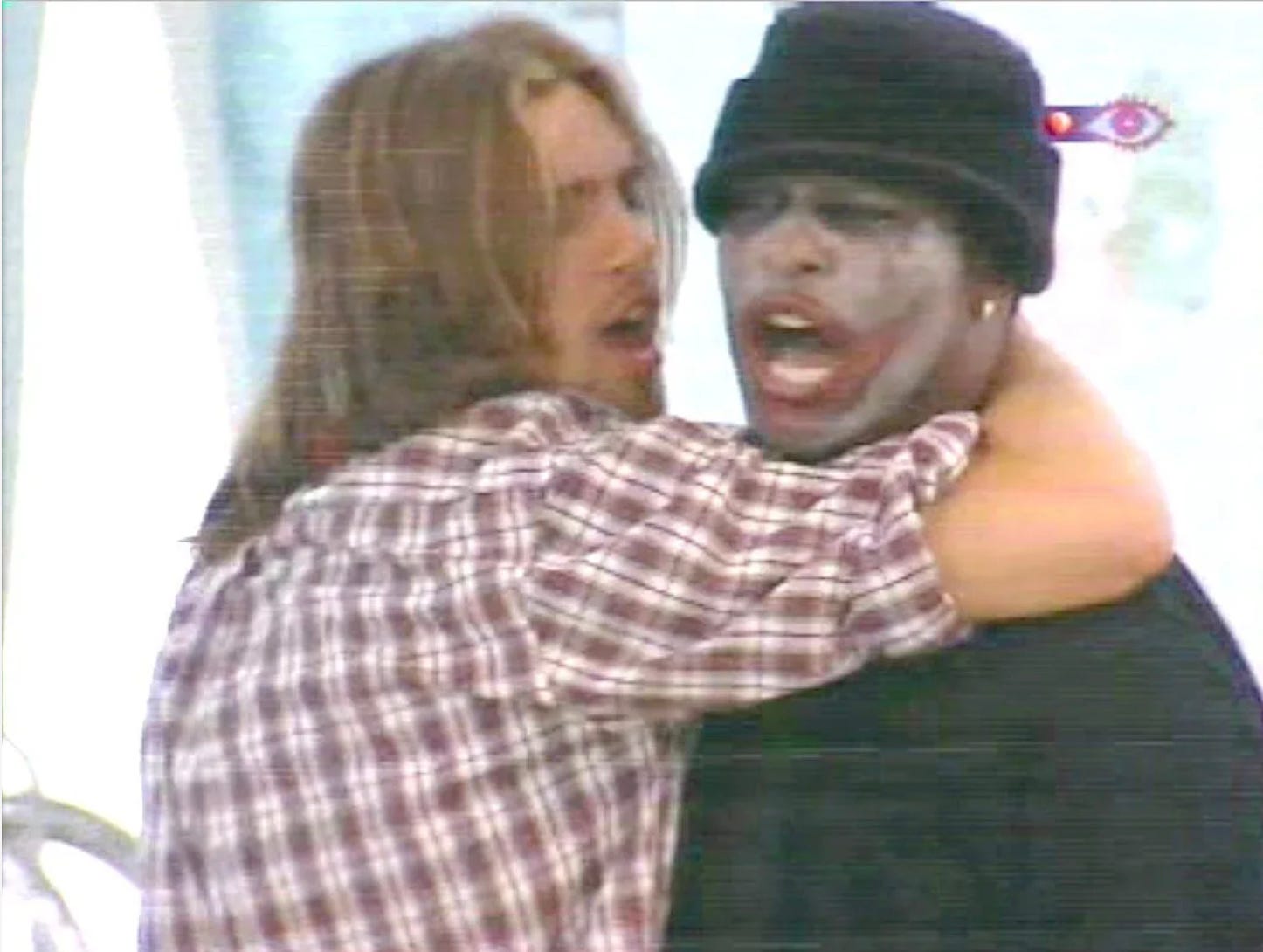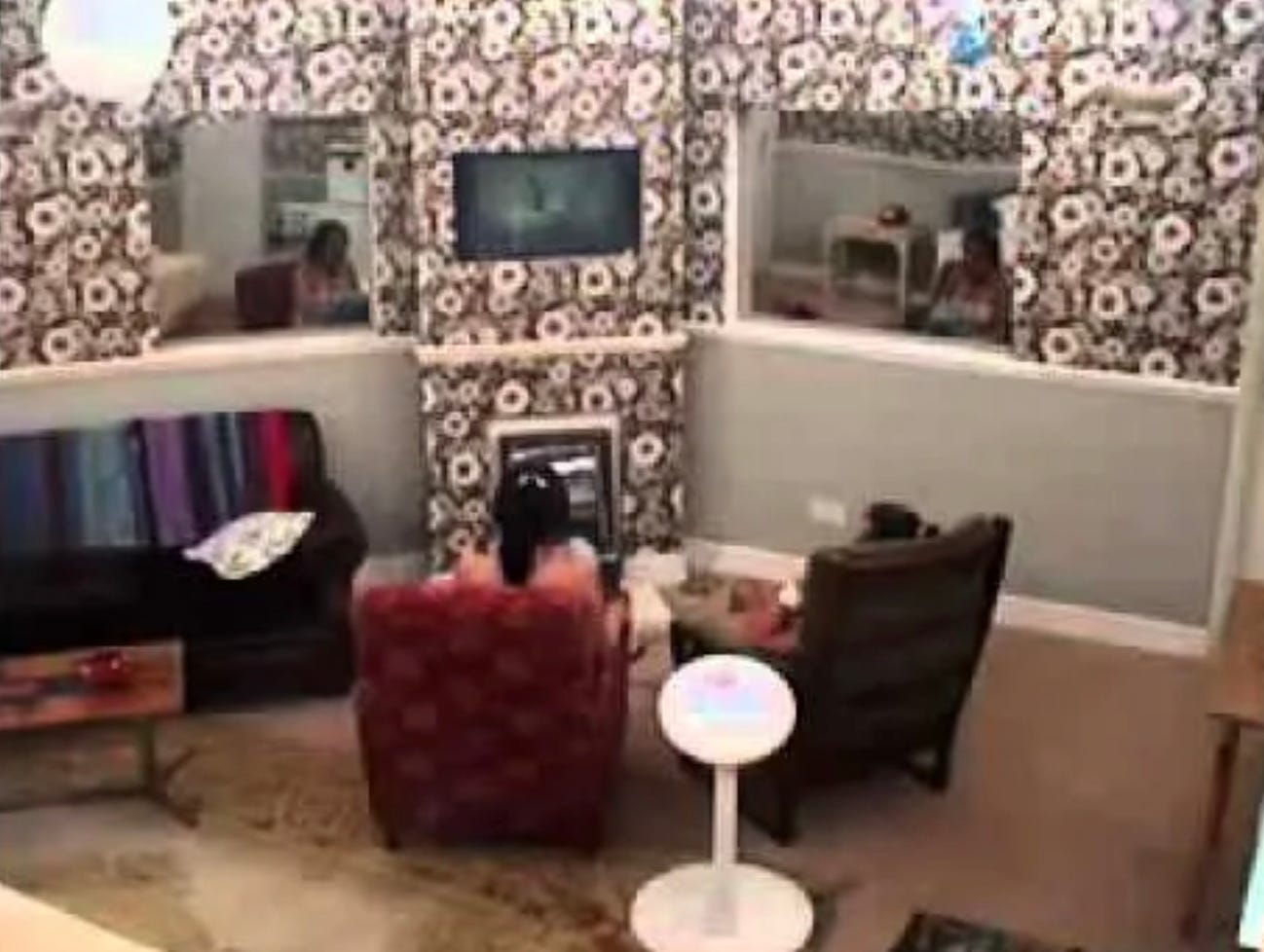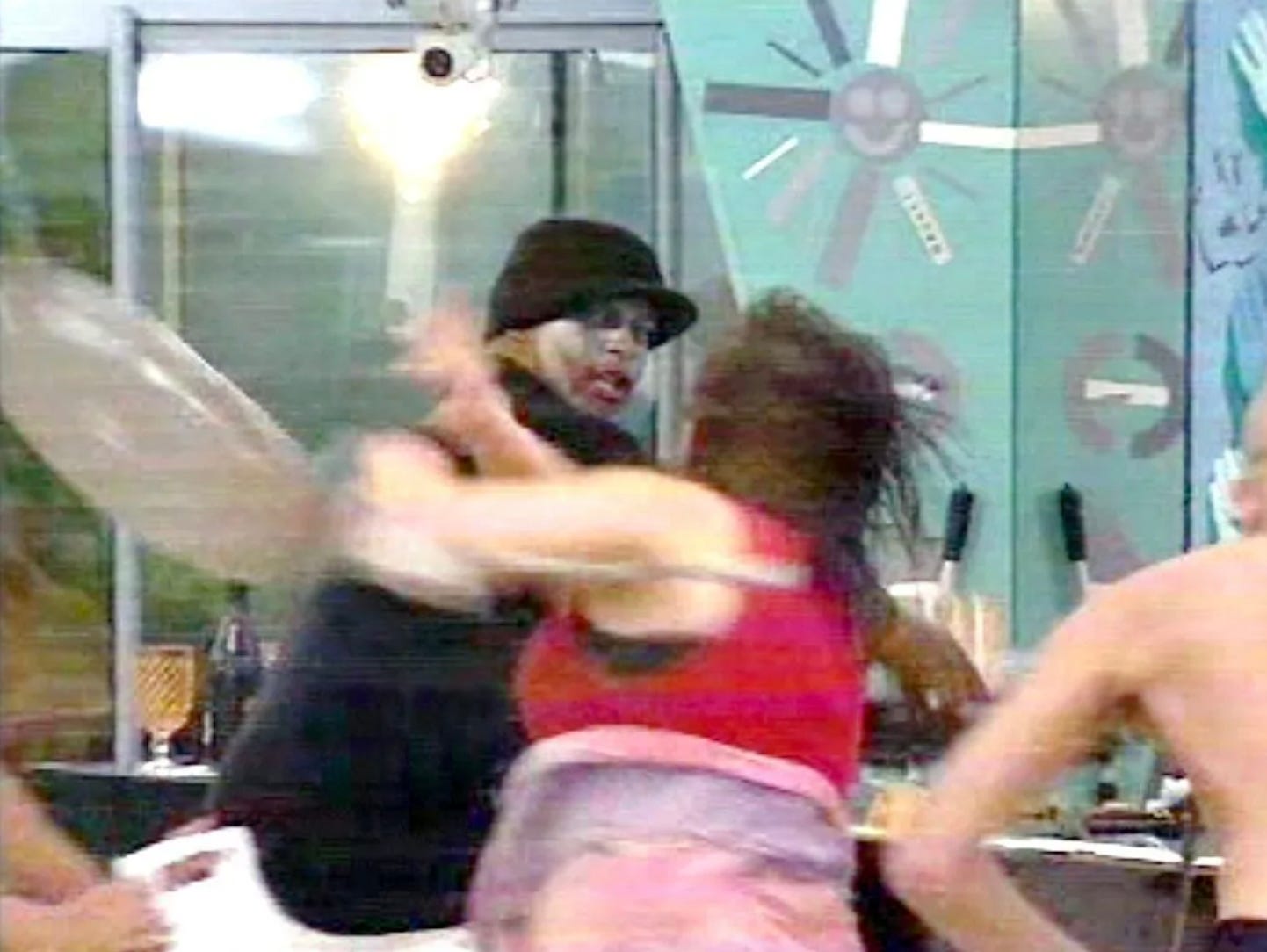Remember 'Fight Night'?
It takes a certain type to be a Big Brother producer
Do you remember on Big Brother when they pretended to eject two housemates but just put them in ‘The Bedsit’ to watch live transmissions of the people they thought were friends, talking shit about them?
Fifth season, I just discovered, broadcast in 2004.
The Bedsit was a small, concealed room equipped with a double bed, a tiny kitchen, and a bathroom. There was also a plasma screen TV on which Michelle Bass and Emma Greenwood, the faux-evicted housemates, could watch a live transmission of their former friends talking about how terrible they were.
As you can imagine, the two women goggling at the screen were the subject of much discussion among their none-the-wiser former friends. Many things were said, none of them complimentary, things that would make you hate the person saying them. Emma Greenwood, especially, could not take her eyes off the screen. And who could blame her? To hear what people say about you when they think you’re not listening? Yes, please. That is a thing that is certain to enrich a life.
I jest of course. Take myself, for instance! I have not wanted to hear what people are saying about me for the last six years. In the Buffy The Vampire episode ‘Earshot’, Buffy drinks some infected blood from a pair of mouthless demons, and finds that she can suddenly hear her classmates’ thoughts. Initially delighted at the development, she soon realises that not all her classmates are thinking nice things. One young male student admires her beauty. She’s flattered until he follows it with his desire to “slam her against the lockers and ravish her.” But she can't turn it off, and every malicious thought from rivals and friends alike is transmitted straight into her mind.
So for five days, Emma and Michelle heard every last thing their housemates thought about them, but would never, ever say to their faces.
When the pair were sufficiently agitated, the producers brought them back into the Big Brother house and put on a party to ‘celebrate’ their return. They gave the housemates bottles and bottles and bottles of booze and, just as they had hoped, it kicked off to such an extent that the police had to come round to restore order.
I once met Geoffrey Beatie, one of the psychologists who provided commentary on the programme in the early years of the show, and he told me that the Big Brother producers once asked him for advice on how to make the set more comfortable for the contestants.
He relished the opportunity. “Of course”, he told me, “they took my suggestions and did the opposite to every one of them.” The example I remember from our conversation: He cautioned against the set having clear glass walls, pointing out that when people see but can't hear others, they frequently become paranoid that they’re the subject of discussion. A similar principle is behind the design in the gruelling prison drama Oz, and it’s what the next season’s BB contestants found waiting for them. Meanwhile, Beatie, along with his gentle observations of human behaviour, got the elbow.
My other big Big Brother moment (I adored the show when it began) was meeting Anna Nolan and her partner. Anna was the charming lesbian and former nun who somehow lost to the jovial scouse Duracell Bunny, Craig Phillips. This is her now, by the way.
They shared the house with Melanie Hill, who took the honour of being the first contestant to be booed by the crowd upon leaving the house.
“Melanie was sort of our shop steward,” Anna told me that night. “Always going into the diary room, arguing our case, pointing out in the contract what they were falling short on.” Anna suspected that this was why they edited her as they did, and why she met the reception that she did as she returned to civilian life.
Why do I bring all this up? Oh, no particular reason. Except to express a sense of wonder at the cynicism of those unseen, anonymous, faceless producers—the booze, the hostile architecture, the selective editing. It takes a certain kind of person to do that job, to take such careful steps in creating drama and chaos, working ceaselessly to make people lose their shit, and then painting them in the worst possible light when they do.









sorry folks might be worth refreshing the page on a browser if you got this by email. posted too quickly and noticed lots of errors
In 1961, the Twilight Zone first explored this theme in the Dick York episode "A Penny for Your Thoughts." I'm dating myself, I know.